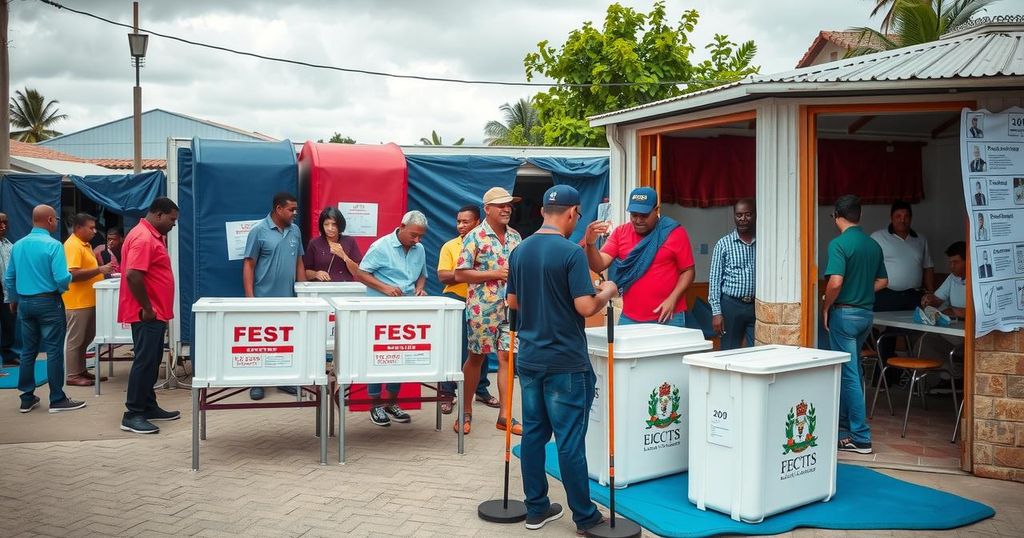World news
ABDALLAH SAMBI, AFRICA, AUSTRALIAN ASSOCIATED PRESS, AZALI ASSOUMANI, COMOROS, ELECTION FRAUD, GOVERNANCE, GOVERNMENT, HAMIDOU KARIHILA, HOPE OF THE COMOROS, INDIAN OCEAN, INDIAN OCEAN ARCHIPELAGO, JUWA, NO, NOUR EL - FATH, OPPOSITION, POLITICS, PRESIDENTIAL ELECTION, REUTERS, SUPREME COURT
Marcus Chen
0 Comments
Comoros Electoral Process Under Scrutiny as Voters Select Parliament
Comoros voters are electing a new 33-seat parliament amid allegations of previous electoral malpractice. President Azali Assoumani, in power since 1999, faces accusations of authoritarianism and dynastic ambitions for his son. Approximately 338,000 citizens are registered to vote, with results expected shortly.
Voters in Comoros are participating in a significant electoral event, choosing representatives for the nation’s 33-seat parliament. This follows the re-election of President Azali Assoumani, which was met with claims of widespread electoral malpractice by opposition groups. Although officials from the ruling party have dismissed these accusations, the political landscape remains contentious. Approximately 338,000 registered voters are casting their ballots from early polling stations opened on Sunday, aiming to influence the future governance of the archipelago.
The parliamentary elections in Comoros mark a notable moment since the last similar event occurred in January 2020. Nearly 100 candidates were vetted by the Supreme Court to run in these elections. Concerns about President Assoumani’s potential succession plans for his son, Nour El-Fath, have added to the atmosphere of unease, as many critics allege authoritarian tendencies within his administration. Furthermore, Assoumani has reportedly endowed his son with significant authority in managing governmental duties beginning in 2024, raising further suspicions about dynastic ambitions.
Amongst the opposition, there exists a division regarding participation in these elections. For instance, the Juwa party, led by ex-President Ahmed Abdallah Sambi, who is serving a life sentence for alleged corruption, has urged supporters to boycott the polls. Contrastingly, factions like the Hope of the Comoros party insist on participation, believing it could unveil systemic issues within the current regime. Hamidou Karihila, an opposition candidate, stated, “The Azali regime is weakened … by participating in these elections we are contributing to further exposing the flaws in its system and accelerating its inevitable fall.” The results of this election are anticipated by Friday.
The Comoros archipelago has faced significant political turmoil over the years, with President Azali Assoumani’s governance being characterized by both support and opposition. Since coming to power through a coup in 1999, Assoumani has maintained his position by winning elections, despite allegations of electoral fraud and authoritarian practices. The political context is further complicated by accusations that Assoumani aims to establish a hereditary succession plan, positioning his son as his potential successor. As the nation navigates these elections, the political climate is fraught with apprehension as various factions continue to contest the legitimacy of the ruling government.
The parliamentary elections in Comoros represent a crucial juncture for the country, with significant implications for its political future. With widespread allegations of misconduct during the previous presidential election, the legitimacy of these elections is under scrutiny. Despite calls for boycotts from parts of the opposition, others believe active participation is essential to challenge the ruling regime. As the results are awaited, the political tension continues to escalate in this strategic Indian Ocean nation.
Original Source: www.lismorecitynews.com.au




Post Comment